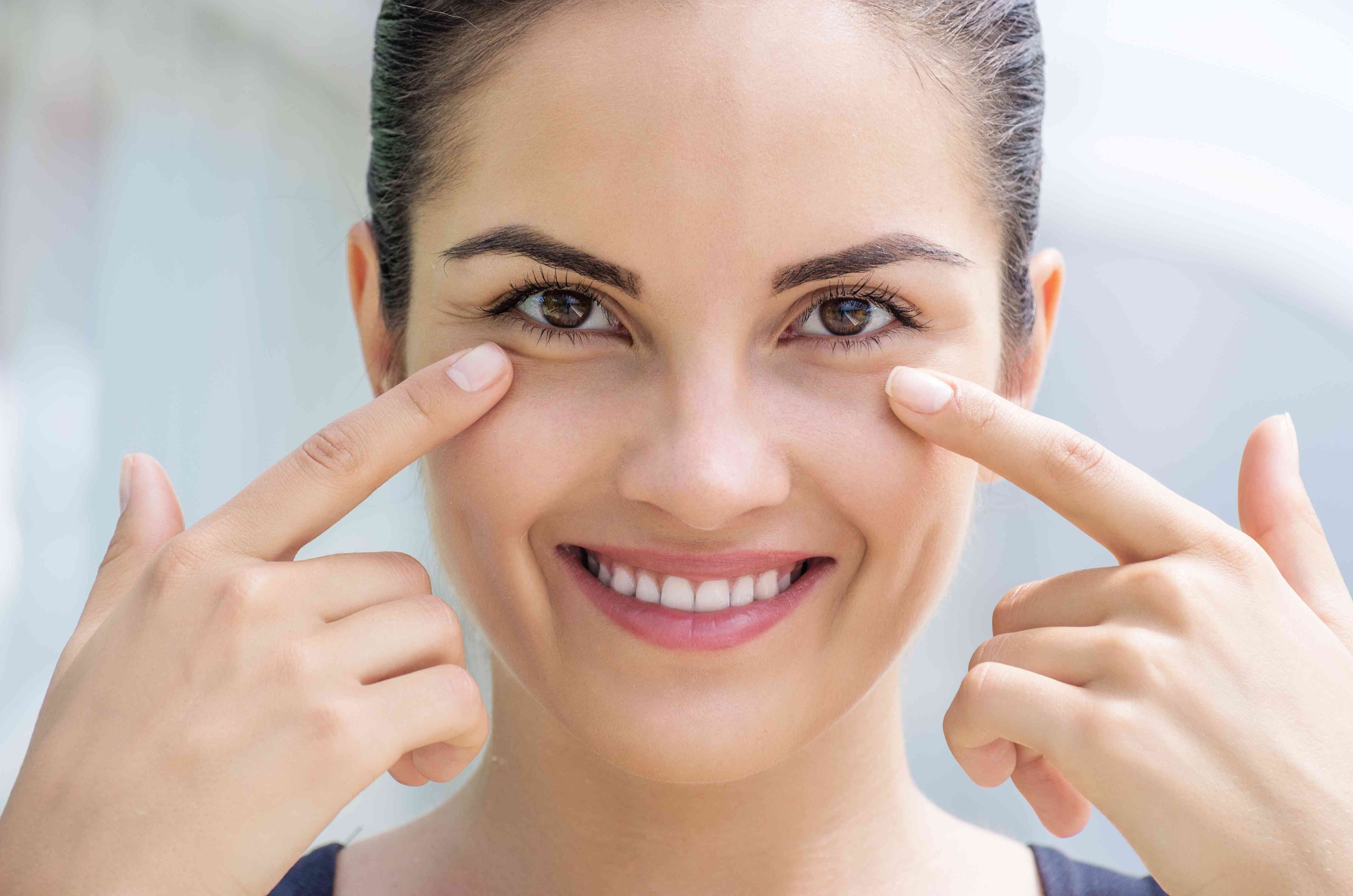

Your eyes are the windows to your soul, so it's important to take care of them. That's where eye cream comes in! Choosing the right eye cream for your skin type can address common concerns like dark circles, fine lines, and puffiness. But with so many options out there, how do you know which one is right for you?
Eye cream is a crucial step in any skincare routine. It targets specific concerns around your delicate eye area that regular moisturizers can't fully address. From hydrating dry skin to reducing signs of aging, an eye cream tailored to your skin type can work wonders.
So, let's dive into finding the perfect eye cream for you!
Finding the right eye cream for your skin type can feel like searching for a needle in a haystack. In this section, we'll help you identify your skin type to choose the perfect eye cream.
The three main skin types are dry, oily, and combination. Dry skin feels tight and rough, while oily skin is shiny and prone to breakouts. Combination skin has both dry and oily areas.
To determine your skin type, observe your face after thorough cleansing. If it feels tight and parched, you likely have dry skin. If there's shine on your forehead or nose, it's likely oily skin. Combination skin shows both dryness and oiliness in different areas.
If you're unsure, consult a skin care professional for expert advice based on a thorough analysis of your complexion.
Understanding your skin type is crucial for selecting an eye cream that addresses your specific concerns. Tailored products yield the best results for concerns like dark circles, fine lines, and puffiness, ensuring maximum effectiveness.
The dry and sensitive skin around the eyes can be a challenge to care for, but the right eye cream can make all the difference. If you have this skin type, you may experience tightness, flakiness, and irritation in the delicate eye area.
To provide the hydration and soothing properties your skin needs, look for eye creams with ingredients like hyaluronic acid, ceramides, and shea butter. These ingredients help moisturize and strengthen the skin's natural barrier.
It's important to avoid eye creams with fragrances or harsh chemicals that can further irritate delicate skin. Opt for gentle formulas specifically designed for dry and sensitive skin.
If you have oily or acne-prone skin, finding the right eye cream can feel like a balancing act. But fear not, there are products out there that can address your specific concerns without causing more breakouts or making your skin feel greasy. Here's how to choose the right eye cream for your skin type:
Addressing Concerns: Oily and acne-prone skin near the eyes can often lead to issues like milia (small white bumps), clogged pores, and excessive oiliness. It's important to find an eye cream that won't exacerbate these problems.
Oil-Free Formulas: Look for eye creams that are specifically formulated to be oil-free. These lightweight formulas won't add any extra shine or clog your pores.
Salicylic Acid and Tea Tree Oil: Ingredients like salicylic acid and tea tree oil help control excess oil production and prevent breakouts around the eyes. They have antibacterial properties that can keep blemishes at bay.
Non-comedogenic Options: Choosing non-comedogenic eye creams is crucial for those with oily or acne-prone skin. These products are specially designed not to clog pores, reducing the risk of breakouts.
Choose Wisely: When selecting an eye cream, opt for ones that are labeled as 'non-comedogenic' and 'oil-free'. This will ensure you're choosing a product specifically tailored to your skin type.
Next, we'll explore optimal eye cream choices for those with combination and aging skin. Stay tuned!
Whether you have combination skin or are dealing with signs of aging around your eyes, choosing the right eye cream is essential. For combination skin, opt for a lightweight yet hydrating formula with ingredients like retinol, peptides, or antioxidants.
Consider using eye creams with SPF for added protection. If you're concerned about aging, look for eye creams that hydrate with ingredients like hyaluronic acid and ceramides, while also targeting fine lines and wrinkles. Retinol-based formulas and antioxidants can help stimulate collagen production and combat free radicals.
Remember that everyone's skin is unique, so it may take some trial and error to find the perfect eye cream. Consulting a skin care professional can provide personalized recommendations based on your specific needs.
Choosing the right eye cream for your skin type is the key to achieving brighter, more radiance-enriched eyes. Here's a recap of what we've discussed and some final tips to guide you in your decision-making:
Understand the importance of eye cream in addressing common concerns such as dark circles, fine lines, and puffiness.
Identify your skin type by observing its characteristics or consulting a skincare professional.
For dry and sensitive skin, opt for hydrating and soothing ingredients like hyaluronic acid, ceramides, and shea butter. Avoid fragrances or harsh chemicals that can irritate delicate skin.
Oily and acne-prone skin benefits from oil-free or lightweight formulas with ingredients like salicylic acid or tea tree oil. Look for non-comedogenic options to prevent clogged pores around the eyes.
Combination and aging skin require a balance of hydration and anti-aging properties. Look for eye creams with ingredients like retinol, peptides, or antioxidants. Don't forget SPF protection if age-related issues are a concern.
Remember to consider factors such as budget, personal preferences, and any additional concerns you may have before making a final decision. Your eyes deserve the best care tailored to your unique needs, it's time to find the perfect eye cream for you!
Choose wisely, your eyes will thank you!
Disclaimer: The information provided in this article is for general informational purposes only. It is not intended to be a substitute for professional advice, diagnosis, or treatment. Always consult with qualified professionals regarding any questions or concerns you may have about your specific situation. Reliance on the information provided in this article is at your own risk. We do not endorse or recommend any specific products, services, or treatments mentioned in this article.
